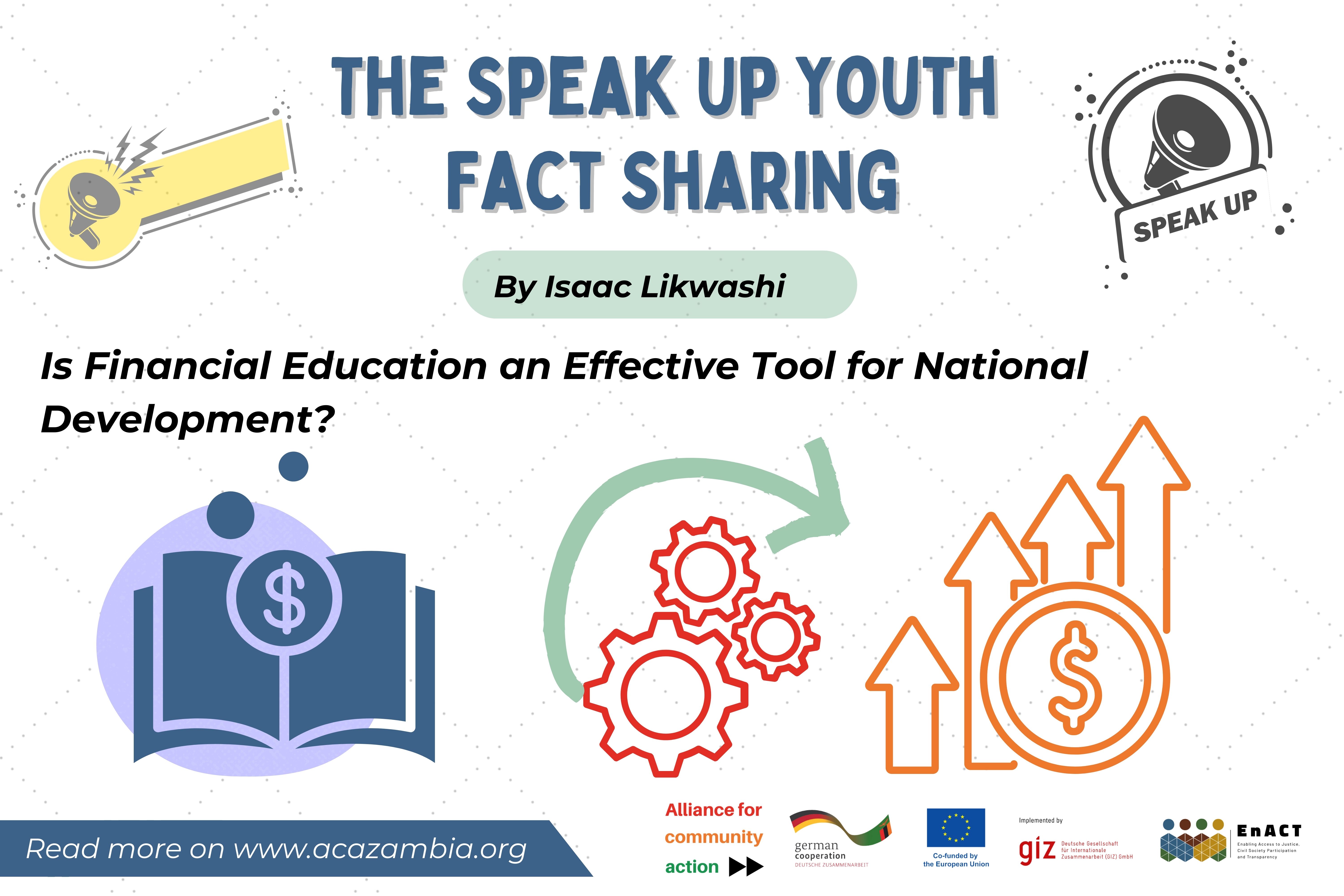
By Isaac Likwashi, Citizen Journalist.
Following the enactment of the National Strategy of Financial Education for Zambia, on 20th July 2023 FinGen Money Geneus Group published their MoU with the National Assembly to all members of parliament.
The document stated FinGen Money Geneus Group was selected as one of the key stake holders in implementing the strategy through the ministry of local government and rural development in all 153 constituencies in the country.
This story examines the concept of the National Strategy of Financial Education.
A national strategy for financial education involves creating and implementing a comprehensive plan to improve the financial literacy and capability of a nation’s citizens. Such a strategy typically involves collaboration between government agencies, financial institutions, educational institutions, and other relevant stakeholders. The aim is to empower individuals to make informed financial decisions, manage their finances effectively, and navigate the complexities of the financial system.
Key components of a national strategy for financial education may include:
Education and Awareness: Developing educational programs and materials to improve financial literacy among various demographics, including children, youth, adults, and vulnerable groups.
Access to Information: Ensuring that individuals have access to reliable and relevant financial information and resources.
Consumer Protection: Implementing policies and regulations to protect consumers from financial fraud, abuse, and exploitation.
Financial Inclusion: Promoting access to financial services and products for underserved populations, such as those in rural areas or with low incomes.
Partnerships and Collaboration: Fostering collaboration between government agencies, financial institutions, non-profit organizations, and other stakeholders to maximize the impact of financial education initiatives.
Successful implementation of a national strategy for financial education requires long-term commitment, adequate funding, effective coordination, and ongoing evaluation and adaptation to changing circumstances and needs.
Some countries that have been successful in implementing national strategies for financial education include:
Australia: The Australian Securities and Investments Commission (ASIC) has been leading efforts to improve financial literacy through initiatives such as the MoneySmart program.
Canada: The Financial Consumer Agency of Canada (FCAC) oversees financial education initiatives aimed at empowering Canadians to manage their finances effectively.
Japan: The Japanese government has implemented various financial education programs through agencies like the Financial Services Agency (FSA) and the Bank of Japan.
United Kingdom: The Money Advice Service and the Financial Conduct Authority (FCA) are key organizations involved in promoting financial education and capability in the UK.
United States: The U.S. government has established the Financial Literacy and Education Commission (FLEC) to coordinate financial education efforts across federal agencies.
Benefits of implementing a national strategy for financial education include:
Economic Stability: Improved financial literacy can contribute to economic stability by reducing financial stress, increasing savings rates, and promoting responsible borrowing and spending.
Individual Empowerment: Financially literate individuals are better equipped to make informed decisions about savings, investments, insurance, and retirement planning, leading to improved financial well-being.
Reduced Vulnerability to Financial Exploitation: Increased awareness and understanding of financial products and services can help protect individuals from fraud, scams, and predatory lending practices.
Enhanced Productivity and Competitiveness: A financially literate workforce is more productive and competitive in the global economy, as individuals are better able to manage their personal finances and contribute to economic growth.
For Zambia, as a new entrant to the concept of a national strategy for financial education, there are several potential benefits:
Poverty Reduction: Improved financial literacy can help individuals and households better manage their finances, increase savings, and access financial services, contributing to poverty reduction efforts.
Economic Development: A financially literate population can contribute to economic growth and development by fostering entrepreneurship, investment, and innovation.
Financial Inclusion: By promoting access to financial services and products and empowering underserved populations, Zambia can enhance financial inclusion and promote inclusive economic growth.
Consumer Protection: Implementing consumer protection policies and regulations can help safeguard Zambian consumers from financial fraud and exploitation.
To maximize the benefits of implementing a national strategy for financial education, Zambia should consider:
Conducting a comprehensive assessment of the financial literacy levels and needs of its population.
Developing tailored educational programs and materials that address the specific challenges and priorities of Zambian citizens.
Establishing partnerships and collaboration between government agencies, financial institutions, civil society organizations, and other stakeholders.
Ensuring that financial education initiatives reach all segments of the population, including rural communities and vulnerable groups.
Monitoring and evaluating the effectiveness of financial education efforts and making adjustments as needed to achieve the desired outcomes.
By prioritizing financial education and capability, Zambia can empower its citizens to make informed financial decisions, promote economic stability and growth, and build a more prosperous and inclusive society.
The National Strategy on Financial Education for Zambia 2019–2024 can be accessed here.
Speak Up Youth Project is implemented in partnership with BYTA FM in Choma, Sun FM on the Copperbelt, Three FM in Chipata and Voice of Kalomo in Kalomo with financial support from the German Development Cooperation.